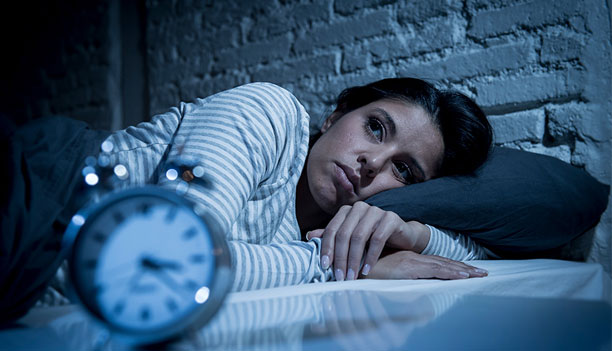Insomnia Causes, Symptoms, and Prevention
Insomnia is a common sleep problem that can make it hard to fall asleep, difficult to stay asleep, or prompt you to get up too soon and unable to get back to sleep. You might in any case feel tired when you get up.
What are the reasons for Insomnia?
There are many causes that can contribute to the occurrence of insomnia that includes environmental, physiological and psychological factors including:
- Life stressors that includes your relationships, job, financial difficulties and more
- Sedentary lifestyle and sleep habits
- Depression, anxiety disorders and other mental health issues
- Chronic pain because of arthritis, fibromyalgia or other conditions
- Chronic diseases like cancer
- Gastrointestinal disorders like heartburn
- Hormone fluctuations because of menstruation, menopause, thyroid disease or other problems
- Meds and other substance
- Neurological diseases like Alzheimer's illness or Parkinson's disease
- Other sleep disorders like sleep apnea and restless leg syndrome
Get your sleep disorder treatment in Kompally
What are the Symptoms of insomnia?
Aside from disrupted sleep, insomnia can lead to different issues like:
- daytime fatigue or drowsiness
- depression, irritability or anxiety
- gastrointestinal symptoms
- low motivation
- poor focus and concentration
- lack of coordination, prompting to errors or accidents
- utilizing medicine or alcohol to fall asleep
- anxiety or worry about sleeping
- tension headaches
- trouble in socialising, working or studying
Consult best neurologist in Kompally if you see the above symptoms of insomnia.
How to prevent from insomnia?
Lifestyle changes and improvements to your bed time routine and bedroom setup can frequently assist you with sleep better:
- Keep away from meals, caffeine and alcohol before going to bed.
- Be physically active during the day.
- Limit your intake of caffeine, including coffee, sodas and chocolate, over the course of the day and especially at night.
- Go to bed and get up simultaneously every day, including weekends.
- Put away cell phones, televisions, laptops or different screens no less than 30 minutes before bed time.
- Stop smoking.
- Turn your bedroom into a dark, cool or quiet sanctuary.
- Loosen up with soothing music, a good book or meditation.
Do you have trouble in falling asleep at night? Do you have to get up at night repeatedly? Don’t you feel fresh even after the night’s sleep and have difficulty in going back to sleep? If you experience these symptoms then it might be a Insomnia – A sleep disorder, make an appointment with Dr. Uday Goutam who is the insomnia specialist in Kompally at neurology hospitals in Kompally
Call Now

